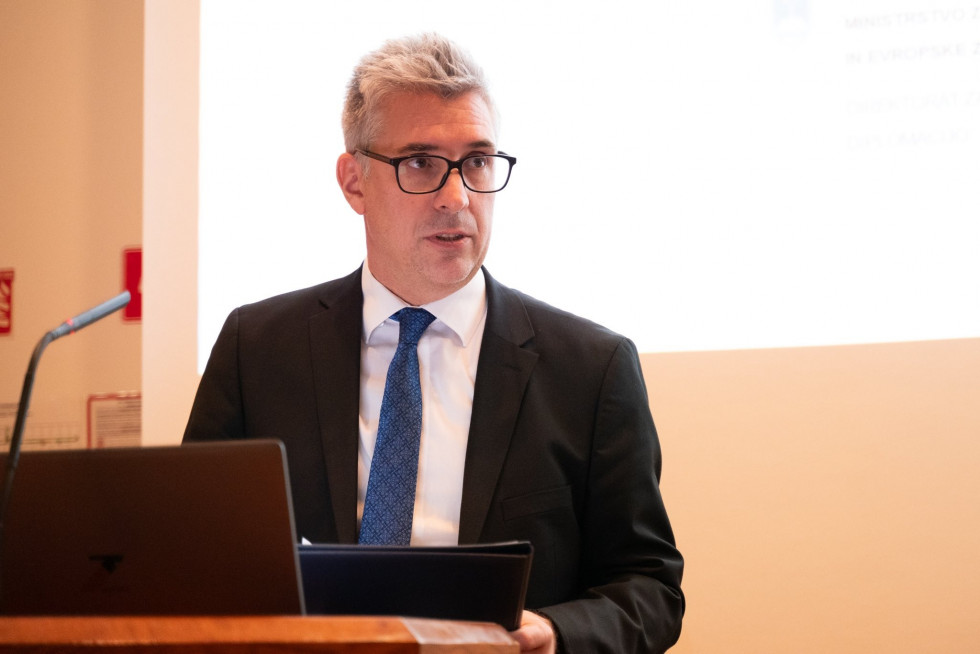Successful first Slovenian-Indian Day of Science and Innovations

State Secretary Marko Štucin | Author Nik Neubauer
The first Slovenian-Indian Day of Science and Innovations was organised to increase knowledge and understanding of different approaches to research and technological creativity, to showcase specific achievements in scientific research and technological development, and to explore scientific innovations in creativity that have the potential to be developed into innovations. The presentations focused on natural sciences, engineering and biotechnology. The participants agreed that innovation is key to the progress of national economies and their competitiveness in the international market.
Marko Štucin, State Secretary at the Ministry of Foreign and European Affairs, emphasised in his address: "Slovenia attaches great importance to science diplomacy, as we believe that knowledge is the key to successfully addressing current challenges. With this in mind, we support research institutions in entering foreign markets, as well as the already established best practice of bringing together scientific institutions and high-tech companies in a comprehensive niche presentation of Slovenian excellence abroad. Slovenia and India enjoy excellent bilateral relations and are already engaged in innovative projects in the field of space technologies and Earth observation. One of the most important is GangaSat, a project to monitor the floodplains of the Ganges basin from space. I would like to see many more projects like this in the future, and for the two countries to further strengthen their cooperation in science and innovation".
Dr Abhay Karandikar, Secretary to the Government of India, Department of Science and Technology, outlined the vision and developments in science and technology in India. Dr Sachin Chaturvedi, Director General of RIS, a policy research institute under the Indian Ministry of External Affairs, pointed to the importance of science diplomacy and intergovernmental cooperation, and Ms Namrata S. Kumar, Ambassador of India to Slovenia, introduced the culture of scientific thinking and work in India. In addition to the above experts, India was represented at the event by scientists and experts from India and leading institutes and organisations in Europe.
There are many opportunities to increase cooperation between Slovenian and Indian companies and institutions, especially in the fields of technology and science, where India has made significant achievements. Within five years, India will train its first polar research vessel and by 2026 it will send three people on a mission 6,000 metres below the ocean's surface. Shortly after landing on the Moon, India also successfully launched its first satellite, Aditya L1, to study the Sun's photosphere, chromosphere and corona. After the United States, Russia and China, India is now officially the fourth country in the world to have launched a space mission to study the Sun.
The programme of the first Slovenian-Indian Day of Science and Innovations included presentations of inventions that could lead to innovations (by Slovenian and/or Indian researchers from the Jožef Stefan Institute and the National Institute of Biology, respectively) and examples of successful innovations (by the National Institute of Chemistry).
The second Slovenian-Indian Day of Science and Innovations is planned to take place in autumn 2024.

